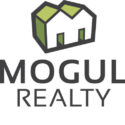A Beginner’s Guide to Wholesale Real Estate
Wholesale real estate is a smart way to enter the property market. It’s ideal for beginners looking to learn the ropes without heavy financial risk. In real estate wholesaling, you find properties under market value and sell them to eager buyers at a profit. This method requires no money down, making it accessible to many. By understanding what wholesale real estate is and how it works, you can start building a successful investment strategy. This guide will walk you through the basics, helping you grasp how to find deals, negotiate with sellers, and close transactions. Whether you’re interested in wholesaling houses or want to know if you need a real estate license to wholesale, this blog has you covered. Ready to dive into real estate wholesaling? Let’s get started!

A close-up photograph of a real estate contract being signed by a wholesaler, detailed view of the contract terms.
What is Wholesale Real Estate?
Wholesale real estate is a strategy that allows investors to enter the property market with minimal risk and investment. In this approach, the wholesaler acts as a middleman between the seller and the buyer. The process begins when a wholesaler finds a property being sold for less than its market value. The wholesaler then secures the property under a contract, which gives them the right to sell the property at a higher price.
Unlike traditional real estate transactions, wholesaling doesn’t involve buying the property outright. Instead, the wholesaler assigns the contract to a buyer. The difference between the contracted price and the selling price is the wholesaler’s profit. This method allows wholesalers to make money without needing to secure a mortgage or invest a large amount of capital.
Wholesaling real estate can be an excellent entry point for beginners. It requires good negotiation skills, market knowledge, and the ability to find motivated sellers and eager buyers. One of the main benefits is that you can start wholesaling real estate with no money down. By leveraging other people’s resources, you can generate profits without significant financial risk.
Overall, wholesale real estate is a flexible and low-risk way to get started in property investing. By mastering the basics and building a network, you can create a successful wholesaling business. With practice, you can learn to identify profitable deals and connect with the right buyers, making wholesaling a valuable strategy in your real estate toolkit.

A workshop on real estate wholesaling, attendees listening to a speaker, detailed charts and graphs on a presentation screen
How to Get Started in Real Estate Wholesaling
Starting in real estate wholesaling can be exciting and rewarding. First, educate yourself about the process. Read books, attend workshops, and join online forums to learn from experienced wholesalers. Understanding the market and knowing what makes a property a good deal is crucial.
Next, build a network. Connect with real estate agents, investors, and other wholesalers. Networking can help you find deals and buyers. Many successful wholesalers rely on their network to get information about properties and potential buyers.

Real estate wholesaler browsing online property listings
Finding Wholesale Properties
Finding the right properties is key to successful real estate wholesaling. The best deals often come from motivated sellers who need to sell quickly. These sellers might be facing foreclosure, going through a divorce, or dealing with financial difficulties. Identifying these opportunities requires research and persistence.
Start by using online resources. Websites like Craigslist, Zillow, and real estate auction sites can provide leads on distressed properties. You can also join real estate investment groups on social media to connect with other investors and find potential deals.
Direct mail campaigns are another effective method. Send postcards or letters to property owners in targeted areas. Focus on neighborhoods where homes are more likely to be undervalued or in need of repair. A compelling message can prompt owners to consider selling to you.
Driving for dollars is a tried-and-true technique. This involves driving around neighborhoods to look for distressed properties. These might have overgrown lawns, boarded-up windows, or other signs of neglect. Once you spot a potential property, note the address and research the owner to make an offer.
Networking is also essential. Attend local real estate investment meetings, join online forums, and connect with other investors. These connections can provide valuable leads and insights. Building relationships with real estate agents can also be beneficial. Agents often know about properties before they hit the market.
Using bandit signs is another way to attract motivated sellers. These signs, placed in strategic locations, advertise that you buy houses for cash. They can be an effective way to generate leads, especially in areas with high investor activity.
Persistence is key in finding wholesale properties. Regularly follow up on leads and keep your eyes open for new opportunities. With the right approach, you can identify profitable wholesale deals and grow your real estate business. Keep refining your methods, and you’ll become more efficient at finding great deals.

Real estate wholesaler driving around neighborhoods, looking for distressed properties
The Process of Wholesaling Houses
Wholesaling houses involves several key steps. First, find a property. Use methods like driving for dollars, direct mail, or online searches. Look for distressed properties or motivated sellers. These are often the best wholesale deals.
Once you find a property, analyze it. Determine its market value by comparing it to similar homes in the area. Factor in repair costs and potential profit margins. This helps ensure you’re getting a good deal.
Next, secure the property under a contract. This contract should include an assignment clause. This clause allows you to transfer the contract to another buyer. Negotiate the best price possible to maximize your profit.
With the contract in place, find a buyer. Use your network, real estate investment clubs, or online platforms to market the deal. Present the property’s potential and the benefits to attract buyers. Be transparent about any repairs needed and the property’s condition.
Once you find a buyer, assign the contract to them. This means you transfer your rights to the property to the buyer. They will then pay the agreed-upon price. You collect an assignment fee, which is your profit from the deal.
Coordinate with all parties involved to ensure a smooth closing. This includes the seller, buyer, and possibly a title company. Make sure all paperwork is in order and deadlines are met. Clear communication is crucial to avoid any last-minute issues.
After closing, the buyer takes ownership of the property. You receive your assignment fee, completing the wholesale deal. This process allows you to profit without having to invest heavily or take on property ownership.
Wholesaling houses can be a lucrative venture. With practice, you can streamline the process and close deals more efficiently. By understanding each step and staying organized, you can build a successful real estate wholesaling business.

Real estate classroom, students attending a pre-licensing course, instructor explaining concepts
Do You Need a Real Estate License to Wholesale?
A common question in real estate wholesaling is whether you need a license. The answer depends on where you live. In many states, you do not need a real estate license to wholesale properties. However, having a license can provide advantages and credibility.
Real estate licenses offer access to the Multiple Listing Service (MLS). This service can help you find potential deals and connect with other professionals. It also shows buyers and sellers that you are a serious and knowledgeable investor. Being licensed can help build trust with your clients.
However, the process to get a real estate license involves time and money. You must complete a pre-licensing course and pass an exam. Additionally, you must comply with ongoing education requirements. If you choose to wholesale without a license, it’s important to understand your local laws.
Some states have specific regulations for real estate wholesalers. These laws might include rules about advertising properties and the assignment of contracts. Violating these regulations can result in fines or legal issues. Always research your state’s requirements to ensure you operate within the law.
Even if a license is not required, consider working with a licensed real estate agent. They can help with market analysis, finding buyers, and navigating complex transactions. Partnering with an agent can enhance your business and provide valuable insights.
In summary, while a real estate license is not always necessary for wholesaling, it can be beneficial. Understanding local laws and building a strong network are key. Whether you decide to get licensed or not, focus on ethical practices and continuous learning. By staying informed and compliant, you can succeed in the competitive world of real estate wholesaling.

Real estate investment meeting, attendees networking and exchanging business cards
How to Wholesale Real Estate with No Money
Wholesaling real estate with no money might seem impossible, but it’s achievable. The key is leveraging resources and creativity. One effective strategy is using an assignment contract. This contract allows you to control a property without buying it outright. You find a motivated seller, negotiate a contract, and then assign that contract to a buyer for a fee.
Start by building a network of buyers. Attend real estate investment meetings, join online groups, and connect with potential investors. A strong network ensures you have ready buyers when you find a good deal. These buyers can be other investors looking for profitable properties.
Another way to wholesale with no money is by partnering with other investors. Find someone with funds who’s willing to invest in deals you find. You handle the legwork, and they provide the capital. Profits are then split according to your agreement. This method allows you to gain experience and build credibility without financial risk.
Using direct mail campaigns can also generate leads. Send letters or postcards to property owners who might want to sell quickly. Target distressed properties or those facing foreclosure. While there is a cost for printing and postage, it’s minimal compared to the potential profits.
Leveraging online marketing is another cost-effective strategy. Use social media, real estate forums, and websites to find motivated sellers. Post ads and network online to connect with potential sellers and buyers. Many deals can be found through online platforms at no cost.
Finally, consider driving for dollars. This involves driving around neighborhoods to identify distressed properties. Look for signs of neglect, like overgrown lawns or boarded-up windows. Note the addresses and research the owners to make contact. This method requires time but very little money.
Wholesaling real estate with no money is possible with the right strategies and dedication. By using creative techniques and leveraging your network, you can find and close deals without significant upfront investment.

A luxurious office with a real estate wholesaler communicating with a potential buyer, discussing the benefits of a quick sale
Common Challenges in Real Estate Wholesaling
Wholesaling real estate offers great opportunities, but it also comes with challenges. One common challenge is finding motivated sellers. These sellers are often facing financial difficulties or other urgent situations. To find them, you must be persistent and use various marketing strategies like direct mail, online ads, and networking.
Another challenge is accurately evaluating properties. As a wholesaler, you need to determine the market value and repair costs accurately. This requires a good understanding of the local market and property conditions. Misjudging these factors can lead to losing money or struggling to find buyers.
Negotiating deals can also be difficult. Sellers may be emotionally attached to their properties or have unrealistic price expectations. Effective communication and negotiation skills are essential. You must explain the benefits of selling quickly and be prepared to make multiple offers.
Securing buyers for your contracts is another hurdle. Building a strong network of cash buyers takes time and effort. Attending real estate meetings, joining online forums, and maintaining relationships with investors are crucial steps. A reliable buyer network ensures you can quickly assign contracts and close deals.
Legal and regulatory challenges are also common in wholesaling. Each state has different laws regarding contract assignments and real estate transactions. It’s vital to understand these laws to avoid legal issues. Consulting with a real estate attorney can help you navigate these complexities.
Finally, managing the entire process requires good organizational skills. From finding properties to closing deals, you must keep track of various tasks and deadlines. Using tools like CRM software can help you stay organized and efficient.
Despite these challenges, wholesaling real estate can be highly profitable. By staying informed, building a network, and refining your skills, you can overcome these obstacles. With dedication and persistence, you can succeed in the competitive world of real estate wholesaling.

Real estate wholesaler driving around neighborhoods, looking for distressed properties, noting down addresses
Conclusion: Mastering Real Estate Wholesaling
Real estate wholesaling offers a profitable entry into the property market. It’s a low-risk way to learn and earn without needing significant capital. By understanding how wholesale real estate works, you can leverage this strategy to build wealth and gain experience.
Starting with a solid foundation is crucial. Educate yourself about the market and the wholesaling process. Learn the legal requirements in your state and stay updated on industry trends. Networking with other professionals provides support and valuable insights. Relationships with experienced investors can open doors to new opportunities.
Finding the right properties is essential for success. Use diverse strategies like direct mail, online marketing, and driving for dollars. Persistence and creativity in your search methods will help you uncover great deals. Accurate property evaluation ensures you’re making wise investments
Negotiation skills are key in securing profitable contracts. Understanding the seller’s needs and presenting attractive offers can help you close more deals. Transparency and honesty build trust with both sellers and buyers, fostering long-term relationships.
Organization and diligence are vital throughout the process. Keep detailed records and use tools like CRM software to manage leads and contracts efficiently. Staying organized ensures smooth transactions and helps you scale your business.
Legal compliance is non-negotiable. Understanding and following local regulations protects you from legal issues and enhances your credibility. Consulting with a real estate attorney can provide clarity and guidance.
Continuous improvement is the pathway to success. Reflect on each deal to identify strengths and areas for growth. Adapt your strategies based on market feedback and trends. By staying committed and proactive, you can thrive in the competitive field of real estate wholesaling.
Real estate wholesaling is an accessible and rewarding investment strategy. With the right approach, dedication, and continuous learning, you can achieve significant success. Embrace the challenges, leverage your network, and stay focused on your goals to excel in this dynamic industry.
For any of your real estate investing or property management needs, trust the experts at Mogul Realty. Contact us today to see how we can help you succeed in your real estate journey.

